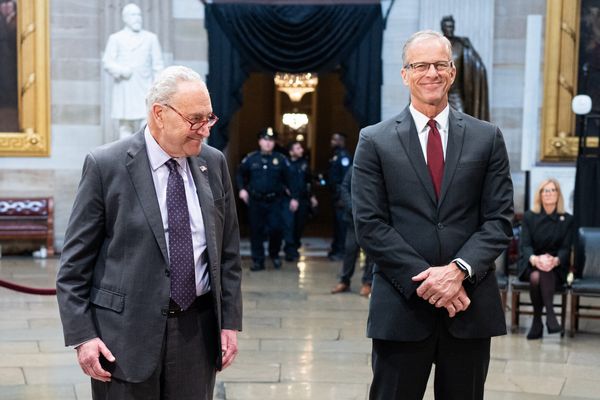
Good morning!
After a disastrous debate performance and weeks of increasingly urgent calls for President Joe Biden to step down, he finally decided to give up seeking reelection over the weekend. He has handed the baton to his vice president, Kamala Harris, who is moving quickly to shore up support.
Many Democrats are relieved that Biden decided to pass the torch, but the entire ordeal was a nailbiter for millions of Americans, and illustrated some timeless lessons: Leaders are reluctant to give up power, and they rarely enjoy planning for their own professional ending.
While the political sphere is very different from corporate America, the entire saga shows the perils of succession planning—something that the corporate world is all too familiar with—and highlights some lessons that politics might learn from the business world, writes my colleague Lila MacLellan.
Finding and grooming the next CEO or C-suite member should be an obsession for corporate boards, and CHROs are often a big part of that process. They look out for rising stars, and cultivate those workers to develop their skills and prepare them for the C-suite. Making sure there are several different candidates ready to step into a role when the time comes is often the sign of a company’s strength, and it often falls on HR to make that happen.
“Great CHROs understand that succession planning is a multi-year process and involves accessing and developing your best internal talent and actively evaluating potential external talent,” Dan Kaplan, senior client partner for the CHRO practice at Korn Ferry, a leadership advisory firm, tells Fortune. “The best CHROs allow the Board and CEO an opportunity to get to know the best external talent and develop relationships with them.”
Planning for succession also came up as a New Year’s resolution for CHROs who Fortune spoke with in January. “I will continue to focus on succession planning, including ensuring that all very senior roles have two identified successors and all successors have a development plan,” said Colleen McKeown, the CHRO of Prologis, a real estate investment trust company.
Political parties aren’t at all the same thing as Fortune 500 companies. But they’re still organizations of humans endeavoring towards certain goals. And although corporate governance doesn’t always ensure a seamless succession of course—just look at Starbucks and Disney—the events over the weekend show the importance of laying the groundwork early on.
Azure Gilman
azure.gilman@fortune.com
Today's edition was curated by Emma Burleigh.







